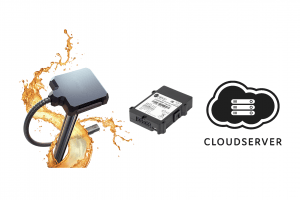Effective fuel management is a critical aspect of modern business operations, especially for industries reliant on fleets of vehicles. Whether you’re in logistics, transportation, or any field involving extensive vehicle usage, the importance of fuel management cannot be overstated. Let’s explore how this essential practice can drive efficiency, cost savings, and environmental responsibility.
1. **Reducing Fuel Costs**
One of the most immediate benefits of fuel management is the substantial reduction in fuel costs. It involves monitoring and controlling fuel consumption, thereby preventing waste and misuse. Fuel management strategies help identify areas where fuel is being consumed excessively or inefficiently, allowing for targeted adjustments. This translates to significant savings in the long run.
2. **Optimizing Fuel Efficiency**
Fuel management doesn’t just save money; it also optimizes fuel efficiency. By tracking fuel consumption patterns and vehicle performance, companies can make informed decisions about route planning, vehicle maintenance, and driver behavior. These adjustments can lead to a more efficient use of fuel and reduced environmental impact.
3. **Reducing Environmental Footprint**
In an era of growing environmental awareness, reducing your carbon footprint is not only responsible but also necessary. Effective fuel management contributes to this effort by lowering fuel consumption and, consequently, emissions. By optimizing routes and practices, companies can minimize their impact on the environment, which is increasingly important to customers, regulators, and the public.
4. **Enhancing Fleet Performance**
Fuel management isn’t just about monitoring fuel levels; it’s also about understanding the bigger picture of fleet performance. Identifying underperforming vehicles or those with higher fuel consumption can lead to improvements in maintenance, routing, and overall fleet efficiency.
5. **Real-Time Monitoring and Adaptation**
Modern fuel management solutions often come with real-time monitoring capabilities. This means that companies can receive data on fuel consumption and vehicle performance as it happens. This real-time data allows for immediate adaptation to changing conditions, enabling companies to make on-the-fly decisions to optimize fuel usage.
6. **Preventing Fuel Theft and Unauthorized Use**
Fuel management also encompasses security measures to prevent fuel theft and unauthorized use of company vehicles. These measures can save significant amounts of money by ensuring that fuel is only used for company purposes.
In conclusion, effective fuel management is a vital strategy for businesses operating fleets of vehicles. It not only saves money but also promotes efficiency, reduces environmental impact, and enhances overall fleet performance. Implementing sound fuel management practices is not just a cost-saving measure; it’s a step toward greater sustainability and competitiveness in today’s business landscape.
Written by: WJ Weitch




